The 1990s will always be perceived as a superlative decade for cinema. Especially 1995, a year where so many films brewed into classics as the years went by. From game-changing animation with Toy Story to groundbreaking suspense thrillers like Se7en to crime dramas like Casino and Heat. It was a defining year for a defining decade. A year after Pulp Fiction paved the way for so many films that would make an imprint in film history, living in ’95, it seemed impossible for the year to compete with ’94. With that, it’s quite neck and neck in retrospect, and such extraordinary filmmakers as Mike Figgis, David Fincher, Terry Gilliam, Todd Haynes, Michael Mann, Martin Scorsese, and Terry Zwigoff continued to raise the bar that year, and they all delivered.
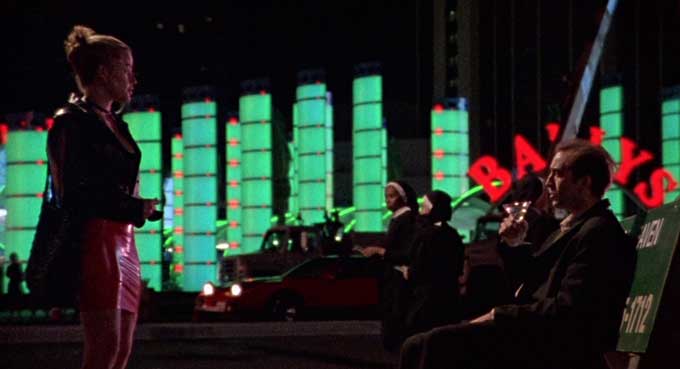
Courtesy MGM/United Artist/Amazon
1. Leaving Las Vegas (d. Mike Figgis)
Shattering and ironically romantic, Leaving Las Vegas showcased Nicolas Cage as truly a great actor, and this film is by far his greatest performance of his career. Even with many other first-rate performances since, like Bringing Out the Dead, Adaptation, and Matchstick Men, to name a few. The performance is quite fearless, and it’s a great physical performance as well, with Cage transforming himself into an ailing alcoholic. Adapted from the novel by John O’Brien, this award-winning drama follows alcoholic screenwriter Ben Sanderson (Nicolas Cage) as he embarks to Las Vegas so he can drink himself to death after his wife and child leave him, which explains his alcoholism that ends up costing him his screenwriting job at a big studio. Ben ends up encountering a Vegas Street prostitute named Sera (Elizabeth Shue), and what ends up becoming a one-night outcall at Ben’s hotel pivots towards a relationship—one where they both must not stand in each other’s way when it comes to Ben’s binge alcohol drinking or Sera’s sex work.

2. Crumb (d. Terry Zwigoff)

3. Se7en (d. David Fincher)
In this masterful thriller, Morgan Freeman plays Detective Somerset, a detective who is on the verge of retiring in an unnamed metropolis that is clearly New York City. Just as he is about to retire there is a strange and bizarre array of brutal murders in which Mills is able to realize that it’s based on the seven deadly sins that have been studied and written about by Christian theologians and teachings. Upon investigating the case, he ends up reluctantly taking his successor Detective Mills (Brad Pitt) under his wing and mentors him in his final week on the job. As they dive further into the investigation, both men become convinced that it’s obviously the work of a serial killer who plays on carrying out more murders until the killer gets to the number seven. Released four years after The Silence of the Lambs and just before many other 90s era serial killer-thrillers, Se7en stands as its own defining piece of great filmmaking. Throw in two great performances (Both Pitt and Freeman are a dynamic duo together), Gwyneth Paltrow who plays the wife of Mills, has never been more vulnerable or sympathetic in her brief scenes. Kevin Spacey as John Doe was never marketed during the marketing of the film, but his performance is even creepier once you watch it after his current scrutiny. A deeply psychological thriller that is still timeless and never dated, Seven is electric (The chase scene of Mills chasing the suspect in question along with a drug addict tied down to a bed are some of the spellbinding things Fincher has ever shot) along with a gut punch of an ending that is wholly unforgettable, and you have this Fincher masterpiece that permanently placed him in the film history books.
4. Casino (d. Martin Scorsese)

During its initial release, some critics didn’t praise Casino as much as Scorsese’s previous mob drama Goodfellas because they felt it was just an inferior retread of Goodfellas as it reunited De Niro and Pesci while Scorsese brought back screenwriter and author Nicholas Pileggi to write the screenplay. While the film holds many of the same sensibilities as Goodfellas, it’s every bit as energetic and layered, yet even more tragic than its counterpart. A three-hour sprawling epic about the Las Vegas gambling industry that is told from the perspective of Sam “Ace” Rothstein (De Niro), Casino is a riveting story that captures the routine rise-and-fall themes of the mobster genre that include power, greed, betrayal and, ultimately, demise. Yet what separates this film from just being another routine mobster film is the Shakespearean poetry and tragedy that unfolds with Sharon Stone as Sam’s corrupted wife Ginger, who continues to break Sam’s heart by going back to her ex-pimp and lover Lester (James Woods). Each of these scenes are gripping and wrenching and showcase some of the best performances found in any Scorsese picture. Pesci is also first-rate as Sam’s heated right-hand man Nicky who is every bit as excitingly maniacal as his Tommy DeVito character in Goodfellas. This is Scorsese at his most shattering and insightful, continuing to deliver his sheer visual extravagance.

5. 12 Monkeys (d. Terry Gilliam)
It’s not easy to pull off a time-travel sci-fi film that goes ono feel timeless decades after, but Terry Gilliam’s 12 Monkeys lives on with a sophisticated screenplay andan immersive vision that feels even more harrowing after post-Covid. Bruce Willis turned in one of his most impressive performances as James Cole, a prisoner in an underground society whois sent on a mission to travel back in time to gather intelligence and prevent the perpetrators of a man-made virus that wiped out most of humanity. Cole ends up encountering Jeffrey Joines (Brad Pitt) once he’s institutionalized, a son of a world-renowned scientist (Christopher Plummer) who holds disdain towards humanity for its treatment of animals, nature, and the planet. Gilliam builds a strong vision that is based on the 1964 French short film. La Jattee builds up an intriguing premise, up to an unexpected love story involving James Cole and his skeptical psychiatrist, Kathryn Raily (Madeline Stowe), who ends up being persuaded once she starts seeing evidence that James is indeed a time traveler from the future. The sequences of James and Kathryn running away from authorities, encountering violent individuals in Philadelphia’s homelessness crisis, and piecing together the motives and next steps of the army of “12 Monkeys” that are plotting their next eco-terrorist plots maximize the dramatic impact. Where 12 Monkeys becomes something more than just a time travel film, Gilliam has made an existential film on the consequences of time travel as well. Especially the third act that ties in everything from James’s flashbacks to his childhood trauma. Gilliam brilliantly keeps the key themes of La Jetée predetermined, as well as satisfyingly updating and energizing the story that holds up today.

6. Safe (d. Todd Haynes)
Safe offers a sublime and often heartbreaking look at a woman getting ill from the outside word from her own neurotic sensibilities and anxieties that modern science at the time can’t understand or define. With a memorable use of meticulous and symmetrical framing and a keen feeling for displacement in the world within that space. Auteur Todd Haynes comes away from this film with a sense of how individuals pull through severe and mysterious illness to maintain their own sense of placement in a changing and equally environmentally decaying world. This film periodically reassures the viewer before we start loving our outer world and environment, we must start loving and caring for ourselves. Julianne Moore’s performance in this film is astonishing, one that is both delicate and heart-breaking, Haynes pulls you into her world and you feel her vulnerabilities from the outside world crashing down on her within.
Courtesy Warner Bros.
7. Heat (d. Michael Mann)
A brilliant examination of moral determination, Michael Mann’s Heat serves as a colossal achievement in craftsmanship and perfect storytelling. It’s a passionate film that holds the most scope and ambition of Mann’s impressive career, where the impeccable directing skills support the gripping narrative. Truly one of the 100 Best Films of the 1990s, and the exchange between Al Pacino and Robert De Niro is for the cinematic history books, setting up a taut cat-and-mouse thriller with a mesmerizing climax that holds up to its buildup. I’m curious how the sequel will turn out, as Michael Mann is set to return to the director’s chair for this beloved crime drama. It truly is a gift that Mann was able to get De Niro and Pacino in the same film together for the first time since The Godfather Part II. Only this time, they got to share scenes together and they are respected adversaries that have different duties but carry out similar principles with their dedication to work, making them formidable foes. Master criminal Neil McCauley (De Niro) is plotting one big heist before he retires. Meanwhile, Lieutenant Hanna (Pacino) is determined in taking down McCauley’s plot as he deals with the downward spiral of his own life that involves a separation with his wife (Diane Venora), and the mental health of his loving stepdaughter (Natalie Portman), while being at odds with the LAPD in how they can take down McCauley. Heat is one spellbinding film, and it never drags one bit throughout his near 3 hour running time. The climatic finale between Hanna and McCauley is perhaps the most rousing set-piece Mann has ever staged; it rivals The Last of the Mohicans, but its electrifying as Moby’s God Moving Over the Face of the Waters with the Kronos Quartet plays in the background. Repeat viewings are necessary due to how elaborate the narrative and set pieces really are.

8. Toy Story (d. John Lasseter)
Animated films don’t often make year-end or retrospective lists, and that’s probably wrong of me because of just how much artistry goes into them. Nevertheless, they often follow the same formula, and they are mostly designed for children. John Lasseter, though, surely made a game changer. With stunning state-of-the-art digital animated work that has standardized how films are animated today, terrific voice work, and memorable characters like Woody (voiced by Tom Hanks) and Buzz Lightyear (Tim Allen), Toy Story remains a joy today, as the film focuses on rich storytelling and fine detail to its characters. Lasseter finds the small charms of being a kid, as the film focuses on a young boy named Andy (John Morris), who ends up getting a new action figure named Buzz Lightyear, which jeopardizes his cowboy doll Woody as being his new favorite toy. When Andy leaves, the toys come to life and interact with each other. Buzz is very egotistical and believes he’s truly Buzz Lightyear sent on a space mission, while Woody is humbler. The two dolls bond once Andy’s new neighbor named Sid (Erik von Detten), who takes Andy’s toys and likes to torture them. With stellar animation, wonderful voice work, and a rich narrative flow, Toy Story positions itself as a brilliantly satisfying work.

9. Exotica (d. Atom Egoyan)
One of Atom Egoyan’s greatest accomplishments, between Exotica and The Sweet Hereafter, showed Egoyan was at his peak. With Exotica, his signature style really stands out. The film seamlessly blends themes of grief, obsession, and how individuals respond to profound loss. The film centers around an upscale Canadian strip club called Exotica. We are introduced to a small ensemble of characters, including Christina (Mia Kirshner), who is the most popular dancer at the club, and her top customer is Francis (Bruce Greenwood), a depressed tax auditor who is grieving from the loss of his child. We are introduced to the club’s MC, Erik (Elias Koteas), who observes Christina’s every dance and becomes jealous of the customers as he introduces her onstage. Erik has a relationship with the club’s owner, Zoe (Arsinée Khanjian), who is pregnant with his child. They treat Christina as if she is their daughter, as everyone holds an obsession over her. Francis ends up getting banned from the club, and he ends up using a pet shop owner that he’s auditing named Thomas (Don McKellar) to go back into the club to get back into communication with Zoe. It’s a compelling film that genuinely deals with characters in a seedy environment with no judgment. In fact, Egoyan brings so much elegance and grace to the material that everything feels glossy with soul. Egoyan doesn’t find solutions; he taps into true emotions on display about loneliness and the human condition. This is a great treasure of a film, good enough that it warrants rewatches.

10. Babe (d. Chris Noonan)
Due to its execution, Chris Noonan’s classic family film Babe remains a game changer. What could have been just a disposable family movie is that is still inventive and so moving that it’s still worth celebrating 30 years later, especially for animal lovers. This was a time when animals were performers, and CGI was starting to touch the surface at the time with animals like Jumanji and Jurassic Park. Noonan and producer George Miller kept it mostly practical; even when the animal’s mouth movements feel cutting edge, the technicians used a combination of (CGI), movements, CGI and sophisticated animatronics, and most of the animals were real and trained. James Cromwell was awarded Best Supporting Actor for his performance as a kind farmer named Arthur Hogget, CGI and who ends up bringing a new piglet named Babe (voiced by Christine Cavanaugh) from a county fair. As Babe comes close to becoming the Christmas ham, Farmer Hogget ends up sparing him and decides to showcase Babe at the next annual fair the following year. Meanwhile, Babe gets to bond with various other animals on the farm, although Babe’s closest bond with a motherly border collie named Fly (voiced by Miriam Margolyes) ends up causing some tension with Fly’s jealous husband, Rex, who doesn’t accept Babe on the farm through his own prejudice and addiction to power. Modern film buffs should check this film out more, especially the ones that love Paddington. This one is fluid and deeply moving, showing no signs of feeling dated upon revisits.
Runners-Up (In Alphabetical Order)
The Addiction (d. Abel Ferrera)
Iconic Independent filmmaker Abel Ferrara has had an interesting career, despite his work not being quite as celebrated these days by modern film buffs. Hopefully his role in Josh Safdie’s Marty Supreme and on will generate interest and rediscovery in the coming years. With that, he has made some undisputable masterpieces like Bad Lieutenant (1992), Mrs. 45, and King of New York. Happily, a few years back Arrow released a Blu-ray of The Addiction, and it’s considered to be not only one of the greatest films from the 1990s, but it’s also hailed as one of the greatest horror films of all time as well. It’s written by frequent Ferrera writer Nicholas St. John, who just happened to write Ferrera’s finest films. The film stars Lily Tomlin as Cathleen, a New York grad student pursuing her doctorate in philosophy whose life instantly changes after she is bitten by a vampire in a back alley. She tries to adjust to the new lifestyle, and she can’t restrain her thirst for blood. However, it is a possibility that Cathleen is ill from getting some tainted blood. This film brilliantly examines the modern world and just how vampires can adjust to a world of pollution, modern diseases, and the blood metaphor serves as a metaphor for substance abuse and drug addiction. The film is sophisticated, daring, and engrossing, with some stunning black and white cinematography by the late Ken Kelsch. Christopher Walken also has a brilliant supporting role as Peina, a fellow vampire who has learned to suppress his hunger for decades by fasting.
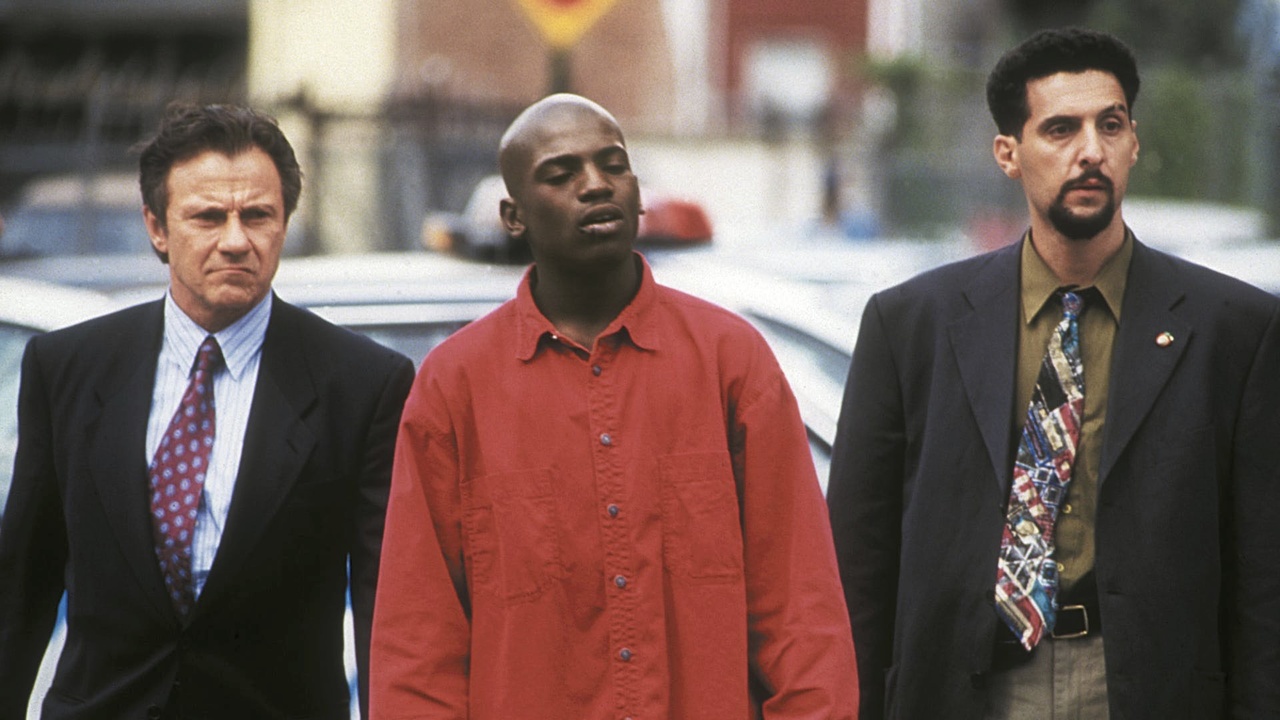
Clockers (d. Spike Lee)
Based on a crime novel by Richard Price so riveting that it sadly still feels timely today, Spike Lee’s gripping, powerful, engrossing crime drama Clockers does an extraordinary job in balancing human drama with empathy, even when the material gets despairing at times. Mekhi Phifer made his big screen debut with an “inducing credit” where he plays the lead of Strike Dunham, who is a drug pusher in Brooklyn under Rodney Little (Delroy Lindo), who wants Strike to kill a former dealer that stole money from him. When the dealer ends up getting shot, Strike ends up becoming a prime suspect. The shocking twist comes when Strike’s brother, Victor (Isaiah Washington), confesses to the murder. The mayhem leads Strike down a path of turmoil that includes being investigated by homicide detectives Rocco Klein (Harvey Keitel) and Larry Mazzilli (John Turturro), who both suspect that Victor is covering up for Spike on the crime. Clockers remains one of Lee’s most unsettling films, but it’s always potent. Watching this film 30 years later is quite shattering, as inner-city and urban crime is ongoing, even as violent crime is way down. This is in part due to trickle-down economics and other socioeconomic disparities that lead to unintended consequences. While the subject matter is potent, the result is a very satisfying and powerful experience.

Dead Man Walking (d. Tim Robbins)
Dead Man Walking could certainly be dismissed as heavy-handed liberal posturing with its genuine stand on the inhumanity of the death penalty, but Tim Robbins rescues the material from that simplistic classification. In this, Robbins adapts the non-fiction novel by Sister Helen Prejean, whom Susan Sarandon plays here with complete grace. Robbins doesn’t provide easy answers, and he brings in moral conundrums to the material. The lead character convicted and set for the death penalty is not a kind person. And that character is Matthew Poncelet, who is played with wrenching impact by the great Sean Penn. Matthew is on death row for the rape and murder of a young couple, and he has shades of white supremacy. You can say he is a product of his environment, but his family is very loving and kind. He committed a horrendous act, and he requests Sister Hellen’s help for one last appeal as he maintains his innocence. At first, Matthew is at odds with Sister Hellen’s spirituality, and as their friendship fosters, the truth is revealed, and Matthew aims to find salvation and redemption as his days are numbered. The beauty of this film is how Robbins shows with great empathy that Matthew has done a depraved act, but the film uses the power of forgiveness, and we see him as a person with feelings and ideas, even if some of them are depraved. In the fact that Robbins is bold enough to make a film that humanizes a criminal, the real tragedy is how society embraces cruel and unusual punishment over the principle of rehabilitation. The exchanges between Robbins and Sarandon are vulnerable and emotionally affecting. Dead Man Walking is a galvanizing film about the power of grace and redemption.
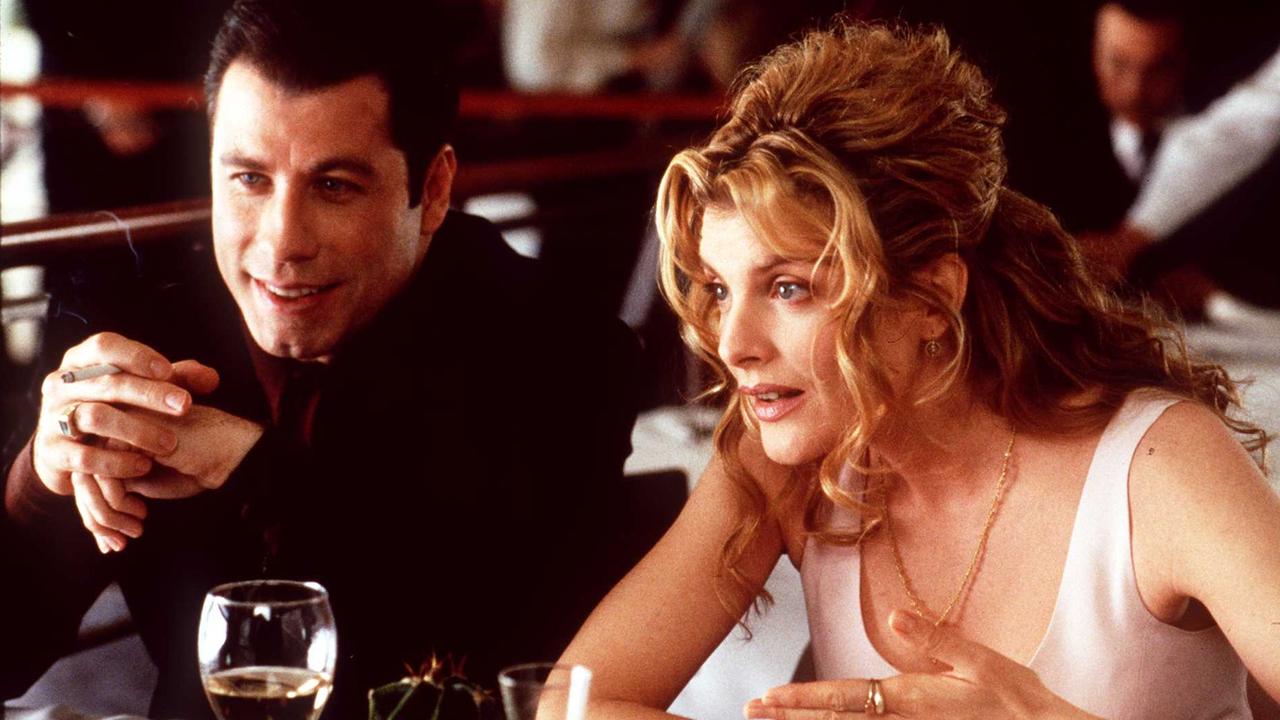
Get Shorty (d. Barry Sonnenfeld)
A cleverly scripted gem of Elmore Leonard’s novel, one that paved the way for Quentin Tarantino’s Jackie Brown and Steven Soderbergh’s Out of Sight, Barry Sonnenfeld Hollywood satire Get Shorty is smart, witty, amusing, and wholly entertaining, and it remains one of the most notable Leonard film adaptations. John Travolta, just rebounding from the success of Pulp Fiction, once again plays a mobster to great impact as Chili Palmer, a Miami loan shark who gets sent by his new boss, Bones Barboni (Dennis Farina), to collect a debt from a Hollywood B-horror movie director named Harry Zimm (Gene Hackman). Chili ends up developing a romance with Harry’s leading lady (Rene Russo), and Hollywood ends up generating some creativity for Chili for a screenplay that he wants to produce that echoes Chili’s own pursuits as a loan shark. Meanwhile, it’s revealed that Harry owes other debts to Bo (Delroy Lindo). a cunning L.A. gangster who wants a slice of the entertainment pie as well. Overall, while this satire isn’t quite embraced these days by modern film buffs as it should be as Barry Sonnefeld hasn’t reached the notoriety of Quentin Tarantino, Martin Scorsese etc., the films satire on the industry remains timely, and its show business echoes the mob, as it’s always about the money.
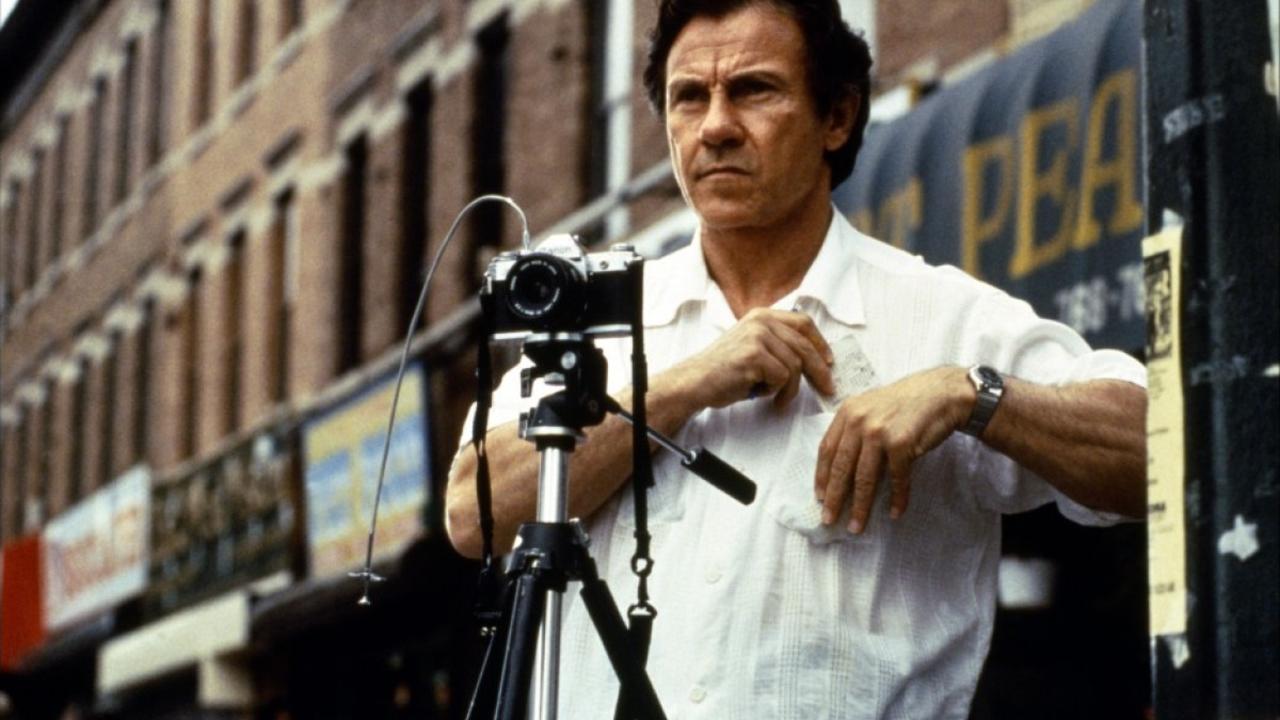
Smoke (d. Wayne Wang)
Directed by Wayne Wang with the original screenplay written by author Paul Auster, Smoke is a small miracle of a movie, a vivid, naturalistic look at pair of New Yorkers that cross paths with different narratives. The first focuses on an accomplished writer named Paul Benjamin (William Hurt), who is almost ran over by a bus after he leaves his favorite smoke job in Brooklyn that is owned by Auggie Wren (Harvey Keitel). Paul was saved by a young man named Rashid (Harold Perrineau), who has recently run away from home. Paul ends up letting Rashid stay in his apartment until he gets back on his feet. Rashid ends up buying Paul a television for his living room so the two can watch baseball together. Paul is recently in grief from his wife who was recently murdered, and the friendship with Rashid and Auggie helps take his time off things. Meanwhile, Rashid embarks on a journey to find his estranged father (Forest Whitaker) who lives in the rural side outside the city and owns a auto repair shop and has another family. The details of why Rashid’s father are left ambiguous, but the scenes involving Whitaker are heart wrenching without being cloying or manipulative. Meanwhile, Auggie discovers that his estranged daughter is about to give birth. The film has a perfect mix of comedy and humor; it’s a great American Indie with film stock and rich dialogue that all feels like a distant memory now. Watching the film now feels like you are put into a time portal, not to sound nostalgic but there is something about those 80s and 90s American independent films that put a little more attention into the writing, into the characterizations, and the grainy film stock to a film like Smoke gave it a grit that matched the characters lifestyles. It’s a near-perfect film about flawed characters, fleeting by, and aiming to find a purpose to the ever-fleeting notion of everyday life. Wayne brings a delicate touch to the material, with a third act of Auggie describing a lonely Christmas dinner with a blind woman to Paul holds such sweeping emotion.

To Die For (d. Gus Van Sant)
Gus Van Sant’s deeply satirical and highly sophisticated, unsettling, and memorable dark comedy and thriller To Die For gets its razor sharpness from its exceptional writing by the late Buck Henry and Van Sant’s commitment to its characters and to their motivations, backgrounds, longings, and aspirations. Based on Joyce Maynard’s 1992 novel of the same name, the film stars Nicole Kidman in one of the greatest performances of her career as an ambitious local reporter named Suzanne Stone, who ends up getting married to Larry Maretto (Matt Dillon), an Italian family restaurant owner who keeps trying to pressure Joyce to give up her career to start a family. Suzanne ends up doing a documentary on teenagers, and she ends up encountering a couple of delinquents, Jimmy Emette (Joaquin Phoenix) and Russell Hines (Casey Affleck), whom she manipulates to murder Larry. She even ends up seducing Jimmy and falsely informs him that Larry is abusing him as she makes false promises to him that they will have a future together. It’s quite an exhilarating ride of a film. Van Sant expertly injects commentary on the extreme routes people will take to gain fame and stardom. This is one treasure of a film, good enough to be one of Van Sant’s finest achievements that warrants repeat viewings. Seek the Criterion Blu-Ray out now.
Honorable Mention (In Alphabetical Order) **All superb films!
Apollo 13 (d. Ron Howard)
Before Sunrise (d. Richard Linklater)
The Bridges of Maidson County (d. Clint Eastwood)
Braveheart (d. Mel Gibson)
Clueless (d. Amy Heckerling)
Golden Eye (d. Martin Campbell)
Il Postino (d. Michael Radford)
La Haine (d. Mathieu Kassovitz)
A Little Princess (d. Alfonso Cuaron)
Living in Oblivion (d. Tom DiCillo)
Mighty Aphrodite (d. Woody Allen)
Muriel’s Wedding (d. Paul Hogan)
Nixon (d. Oliver Stone)
Once Were Warriors (d. Lee Tamahori)
Sense and Sensibility (d. Ang Lee)
Shanghai Triad (d. Zhang Yimou)
Strange Days (d. Kathryn Bigelow)
Through the Olive Trees (d. Abbas Kiarostami)
The Usual Suspects (d. Bryan Singer)
Underground (d. Emir Kusturica)
Wild Reeds (d. André Téchiné)
**Don’t worry, DEAD MAN is in my top 10 list of 1996 due to its May 1996 U.S. Theatrical date (I saw it on VHS that fall of 96)


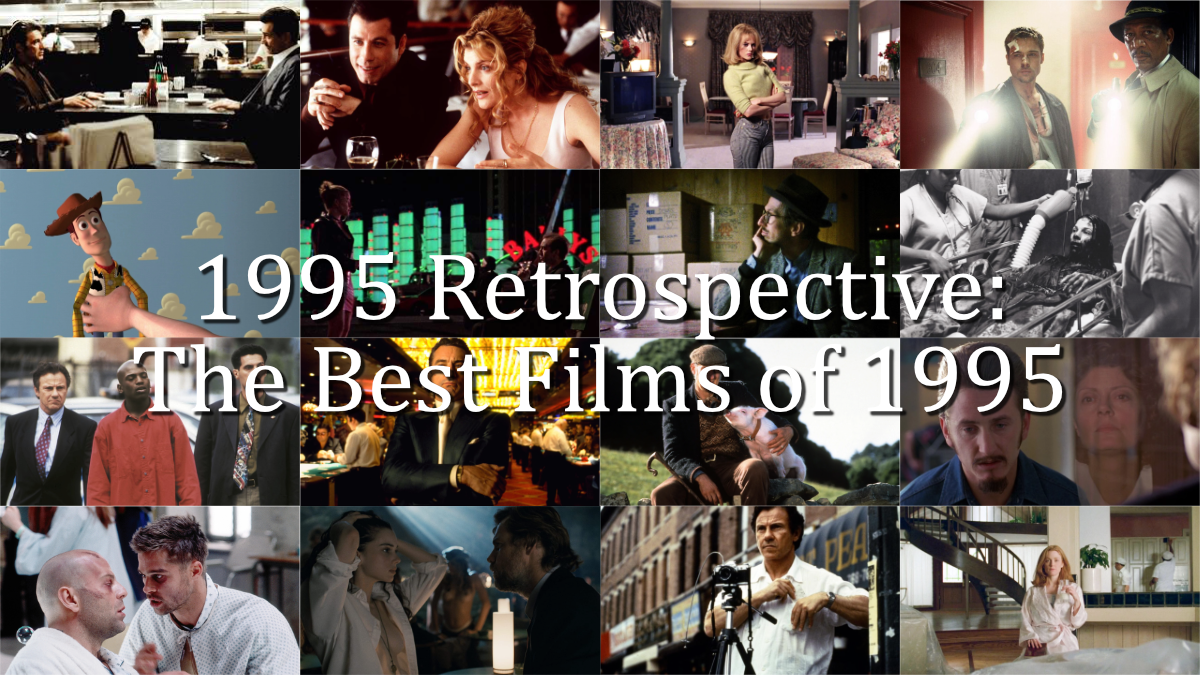
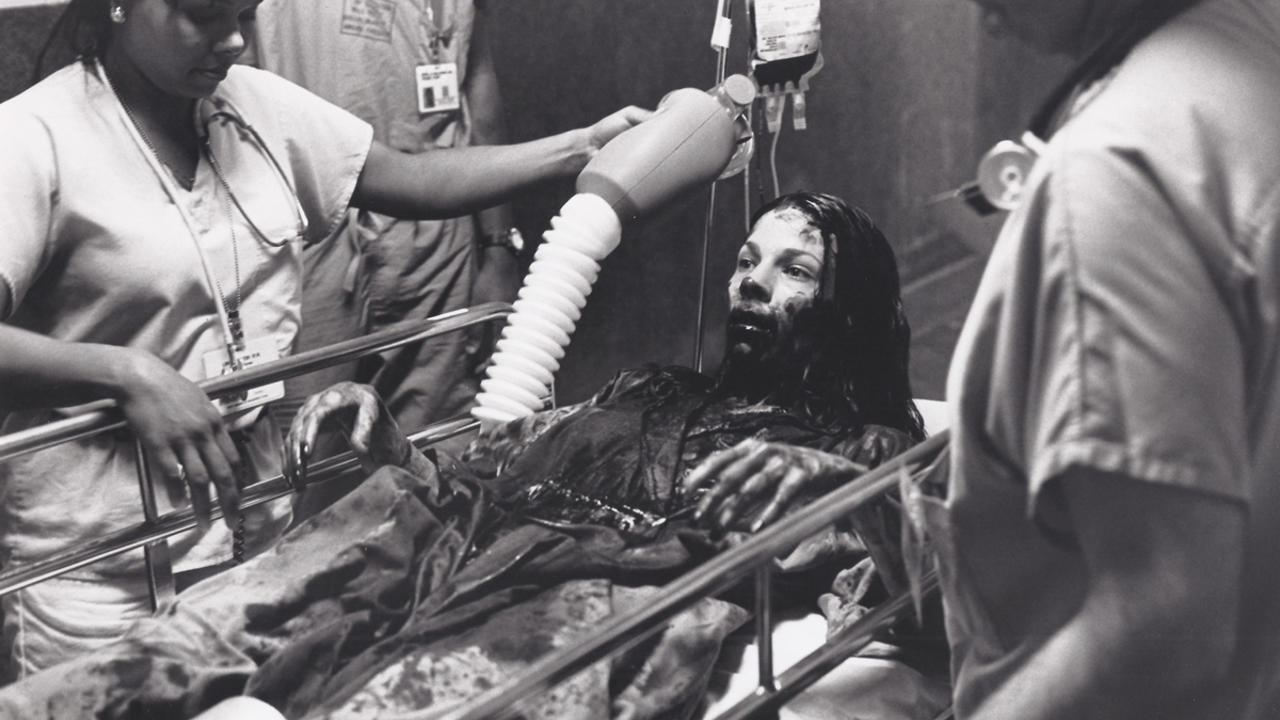
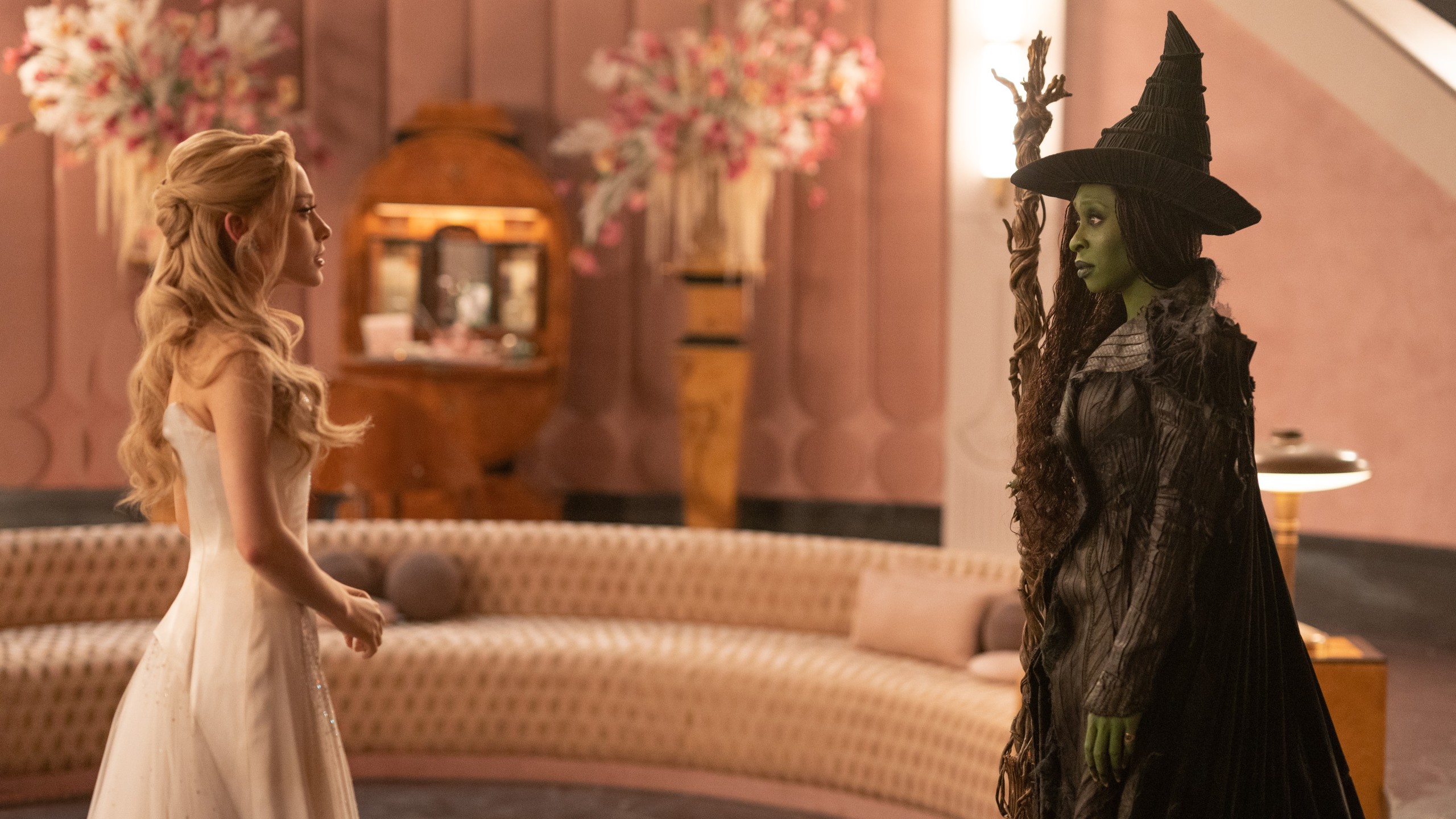
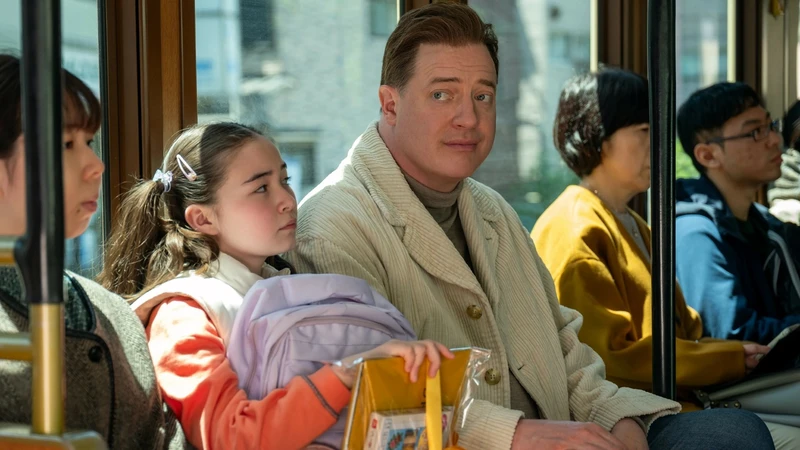
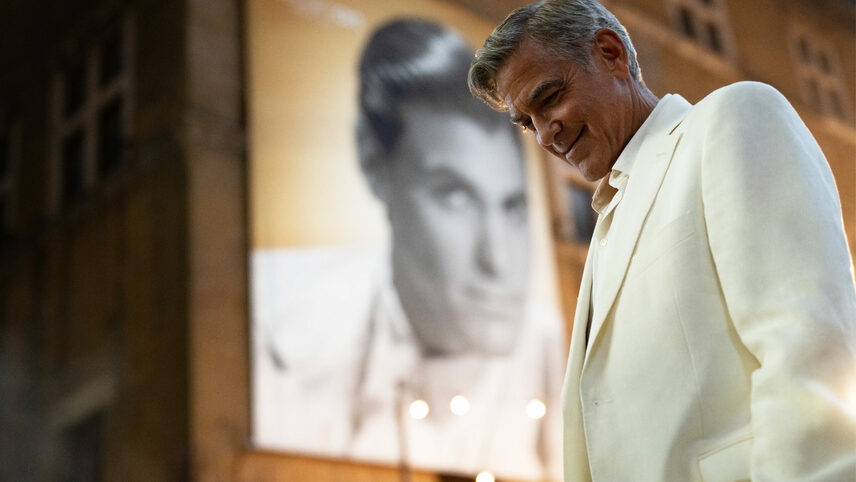
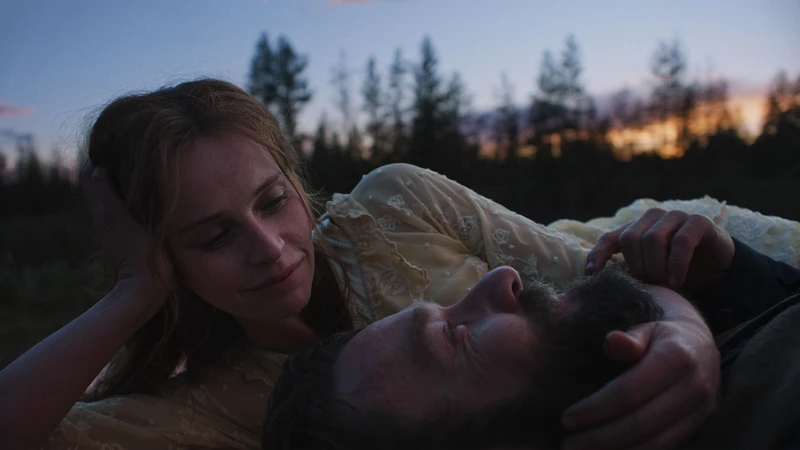
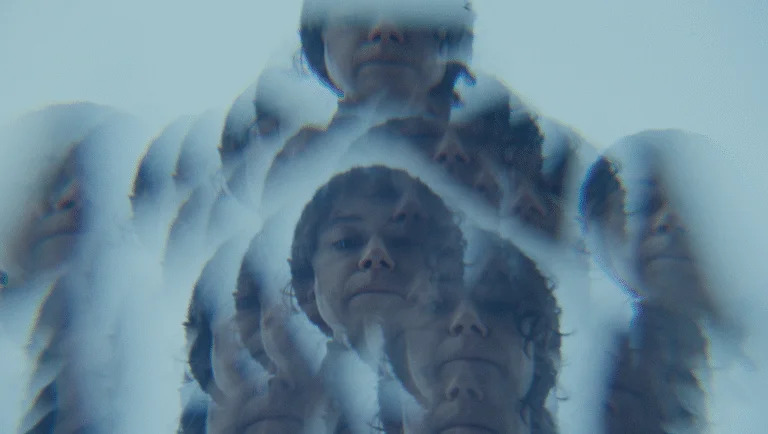
Before Sunrise would be my #1 of the year. Other than that being in the honorable mentions, and my difference in counting years all the titles are there, just slightly different order
Brad Pitt was unbelievable in 12 Monkeys!
Great list of classic films. I missed those days when you could go every other weekend and you’ll see a good or great film. Now, you hope that find something good streaming.